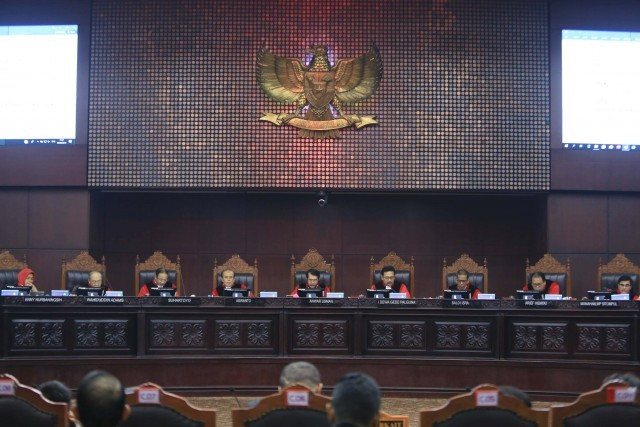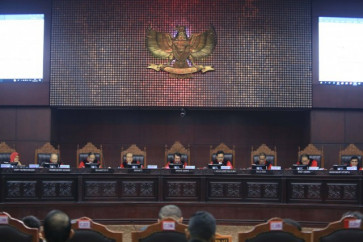Popular Reads
Top Results
Can't find what you're looking for?
View all search resultsPopular Reads
Top Results
Can't find what you're looking for?
View all search resultsAnalysis: Constitutional Court ruling sparks jurisdictional conflict with House
Change text size
Gift Premium Articles
to Anyone
T
he Constitutional Court's recent landmark decision to separate national and regional elections has created significant implications for legislatures, particularly the House of Representatives. In Decision No. 135/PUU-XXII/2024 issued on June 26, the court mandated that starting in 2029, national elections for president, vice president and members of the House and Regional Representative Council (DPD) are to be held 2 to 2.5 years prior to the elections for regional legislative councils (DPRD) and the heads of provincial, municipal and regency administrations.
While it aimed for a clearer electoral calendar, the ruling has inadvertently led to a potential overlap in authorities and practical challenges for existing legislative frameworks that could disrupt the checks and balances of Indonesia’s democracy.
One of the immediate concerns stemming from the court’s decision, according to Dede Yusuf, deputy chair of House Commission II overseeing electoral affairs, is the absence of a mechanism for interim DPRD members. Separating the electoral cycle between the national and regional levels could create a vacuum in DPRD leadership, he said, as the current system lacked provisions for acting officials to bridge the gap between the end of one term and the start of another to align with the new time frame.
Dede also noted that implementing the new ruling would necessitate a huge undertaking for the House to make extensive amendments to several key laws, including the Elections Law, the Law on Regional Head Elections, the Regional Administration Law and the Special Autonomy Law. Commission II was currently awaiting guidance from the House leadership regarding these crucial revisions, he added.
Meanwhile, constitutional law expert Bivitri Susanti has argued that concerns about regional elections exceeding the current five-year cycle are unfounded. The Constitutional Court holds the authority to issue provisions for accommodating the transition between the two time frames, she says, which could include temporarily extending the terms of DPRD members to seven years followed by the resumption of the regular five-year cycle.
Bivitri also emphasized that the Constitutional Court’s decisions were final and binding. Any attempt by political parties or the House to oppose or disregard the ruling could precipitate a constitutional crisis, she warned.
In what appears to be a retaliatory move, the House is currently finalizing revisions to the Constitutional Court Law, which defines the court’s authority and governs the appointment of its justices. House Deputy Speaker Adies Kadir said the draft law revision was completed by the 2019-2024 working committee, which he headed, and it was now awaiting a plenary session for approval.



















